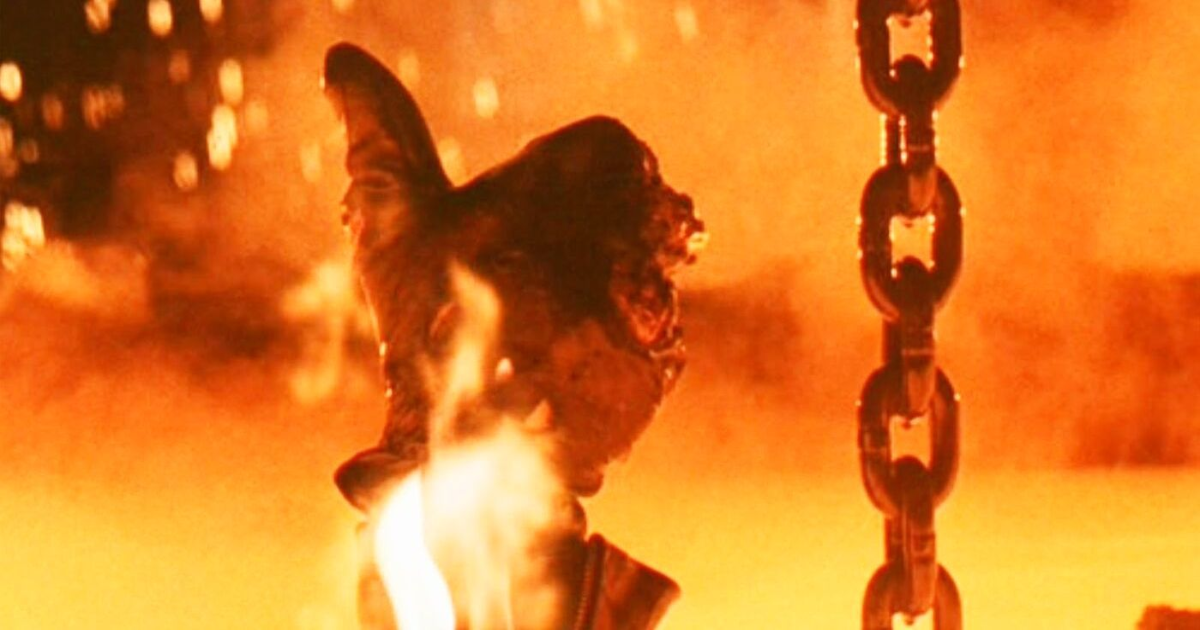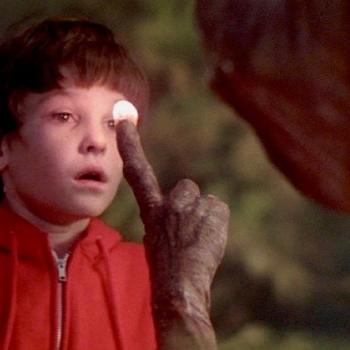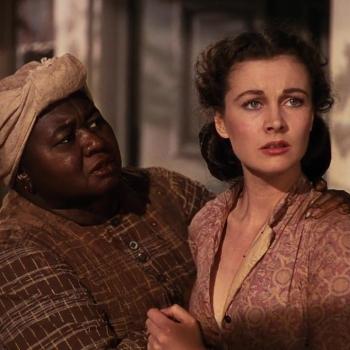
I’ve heard that there’s a new Terminator anime on Netflix. I may give it a glance one of these days, but given how most previous Terminator follow-ups haven’t exactly held up, you can perhaps understand why I hesitate.
My strongest connection to the Terminator mythology is the character of Sarah Connor. I genuinely think she is one of the best characters in all of action-cinemadom. But I’ve already talked plenty about her in my piece on the first Terminator film, as well as in my character study of Sarah for my other film blog. Today, I want to focus on the other two points of the Terminator triangle: John Connor and The Terminator himself. And I want to focus on what these two characters teach us about what it means to have a purpose.
At the start of Terminator 2: Judgment Day, The Terminator has a mission, sure, but no real purpose. He’s just following programming. Even though this is a “good Terminator” he doesn’t necessarily have human values when he first lands in the ’90s. He’s not actively killing civilians as a bad guy might, but he has no qualms about causing injuries to people who get in his way. I have to imagine that the human resistance would have loved to give this guy an ethics lesson before sending him back to the past, but we can guess that they were a little pressed for time. And so it falls on this ten-year-old to teach this piece of metal how to be a model citizen.
Honestly, the time-travelling robots are not the most incredible parts of this movie to me.
This all plays out alongside John’s own internal journey. When we first meet him, he’s a textbook delinquent who resents his mom and antagonizes his foster parents. That’s not to imagine John has no legitimate reasons to be upset. John has been convinced by the authorities that the grand destiny his mother has been building up for him was all a delusion. In other words, John has lost his purpose. That is, until he realizes that everything his mother said was true and that he does have a destiny to fulfill in all this.

From there, John stops wasting his time on petty things and enlists the help of The Terminator to help him save the world. The first major turning point comes when John orders his Terminator to disregard his directive and help him rescue Sarah, even though that jeopardizes the mission. This is a point where John imparts to his robot guardian that there are some things more imperative than simple military objectives: the kid’s gotta get his mom out of the institute before the robots take her out. From there, The Terminator acquires a natural fondness for the humans he works with, particularly John who comes to view him as a surrogate father figure, and this, more than basic code, enables him to do his part and eliminate the other Terminator.
In the case of both characters, they start the film more or less on autopilot, and so they are living below their potential. There are all sorts of things we can read into these character turns–there are a lot of ways in which one can be awakened to their capacity for greatness. But this being a religion-based site, we’ll choose to key in on the spiritual metaphor. Living in accordance with our temporal understanding of the world–that our identity is limited just to our evolutionary ascendancy from apes and nothing we do really matters–keeps us shackled and limits our propensity for goodness. When we choose to see ourselves as eternal beings with an eternal purpose, we learn to stop settling for lesser pursuits and so find the potential to accomplish great things, even save the world.
Some have griped that if we’re to assume that their mission truly succeeds–that they’ve prevented Judgment Day, stopped the entire war, and rendered John’s future position in the resistance unnecessary–then John’s ultimate destiny has changed and that he has now lost his chance to do anything important in life. Because John doesn’t get to take out the robots anymore, he doesn’t get to have any fun. I know this has been a sticking point for some people and apparently even motivated James Cameron to kill off John Connor in “Dark Fate” just so they’d have an excuse to make another movie.
But did John really lose his chance? Was teaching a Terminator–a literal killing machine–how to fight for life such a small victory? Was preventing 3 billion deaths such a meager accomplishment? Anyways, it’s not like there won’t be opportunities for John and Sarah to do any good without a literal apocalypse going on. (I know there’s rumors of a scrapped ending that showed John as like a U.S. senator or something.)
Really, John gets to be in the same position as the rest of us. Our capacity to live as our most powerful selves and to do our most good has never depended on the presence of such literal havoc. There is work enough for us to do if we choose to live as our best selves.














